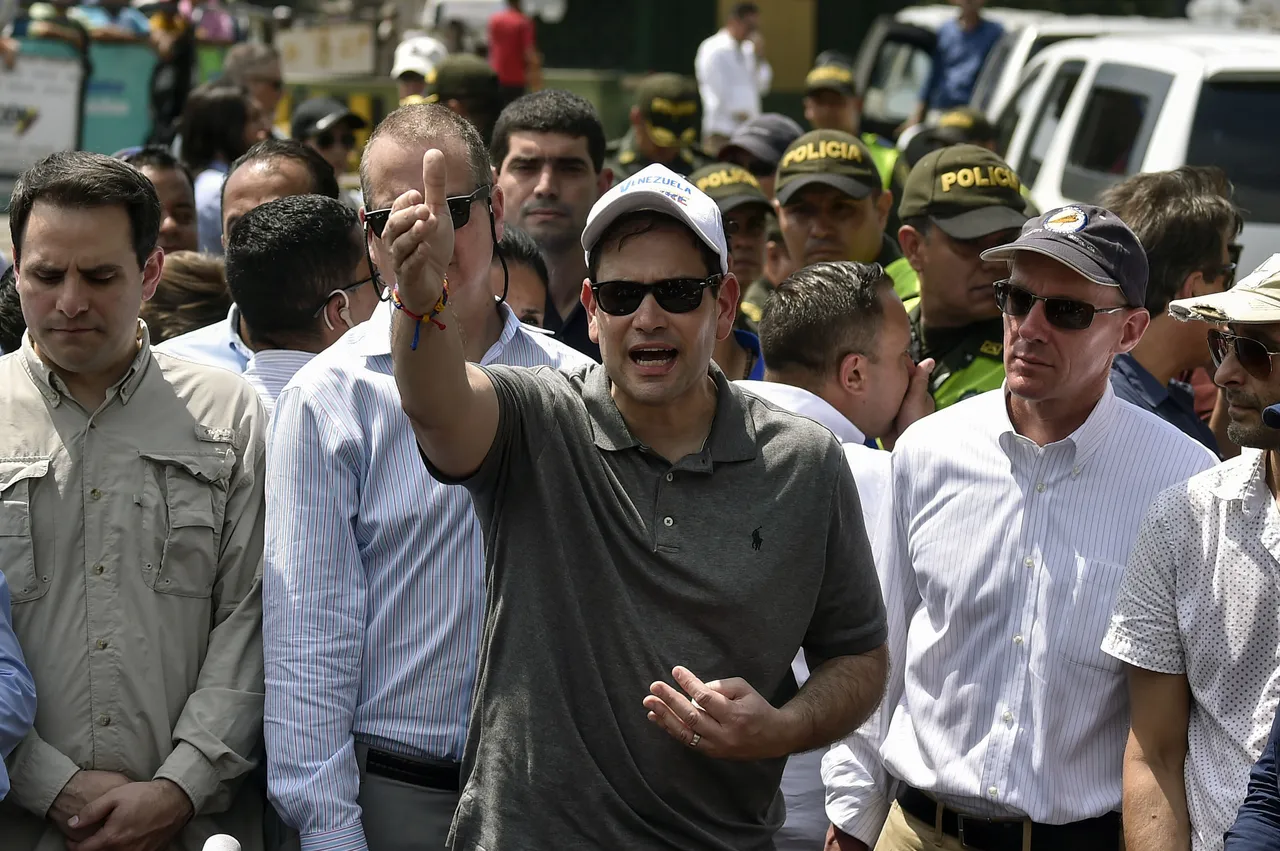
Source

"It is an international crime, a crime against humanity, that it is very clear that and that they make the right decision," Rubio told the media, referring to the refusal of the Nicolás Maduro regime to allow the assistance to enter.
The statements were made during his visit to the Colombian city of Cúcuta, on the border with Venezuela, where he is to supervise the humanitarian aid stored in the collection center of the Tienditas bridge and which is expected to be sent from next Saturday to that country.
Similarly, Rubio highlighted the courage of the Venezuelan people who fight for their freedom and urged him to continue that way: "I do not want them to lose heart. Freedom and democracy require sacrifice. "
The senator also toured the Simón Bolívar international bridge, the main border crossing between the two countries, accompanied by a tide of Venezuelans who shouted cries of protest against Maduro.
In the middle of his trip, the official made a video call with the head of the Parliament and interim president of Venezuela, Juan Guaidó, in which he reiterated the United States' support for his government and told him that "they should never lose hope."
He also affirmed to Guaidó and to the Venezuelan people present that "freedom is going to return to Venezuela," and assured that "the world is with you."
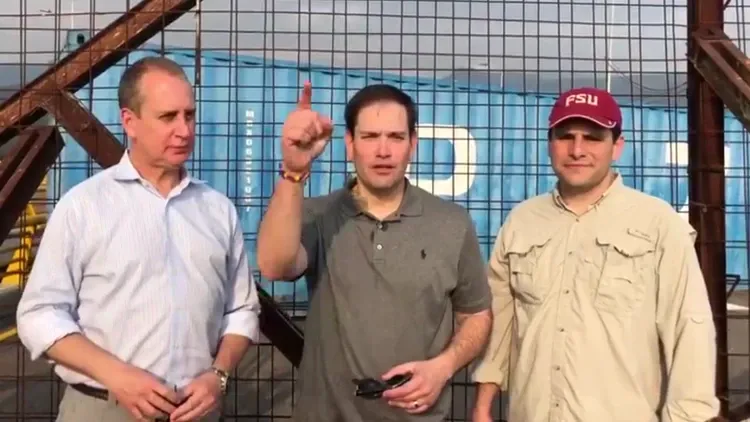
Source
The United States and Colombia were the first countries, to which the majority of America and Europe joined, in recognizing Guaidó as interim president of the country, after he assumed the powers of the Venezuelan Executive on January 23.
Additionally, Rubió said he did not want a military intervention in Venezuela and said that "the only military intervention is that of Maduro, which has destroyed the institutions in his country, have allowed the government of Cuba to mistreat its people and institutions. "
"The solution is very easy, the solution is a free and democratic election and that is what we expect," he concluded.
Rubio traveled with the US ambassador. before the Organization of American States (OAS), Carlos Trujillo, and Republican congressman Mario Díaz-Balart, with whom he supervised the aid sent by the country through the United States Agency for International Development (USAID).
This Saturday, three C-17 airplanes of the United States Air Force arrived at the Cucuta airport loaded with tons of nutritional supplements and hygiene kits, in addition to the humanitarian aid that country sent a week ago.
Cúcuta, along with Curaçao and the Brazilian state of Roraima, are the collection points of humanitarian aid, which was added last Friday Miami.
Ten camps were installed throughout the country to wait for humanitarian aid
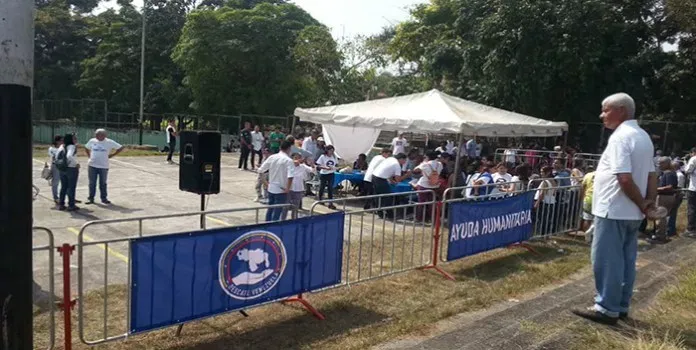
Source
Venezuelan opposition sectors installed a dozen camps across the country this Sunday, in which they counted thousands of people whom they say they will assist with the humanitarian aid that is already being collected in the Colombian city of Cúcuta and that hopes to be able to enter the next day 23
Deputy Winston Flores told reporters from one of these camps, in the depressed Caracas neighborhood of Macarao, that the day of Sunday was characterized by "classification and screening" of diseases among the most vulnerable population, mainly children and the elderly.
The first data collected in this camp in Caracas showed that skin diseases, diabetes, hypertension, Parkinson's disease, osteoporosis and malnutrition - the latter in children - are the most afflictions that afflict the dispossessed in the Venezuelan capital.
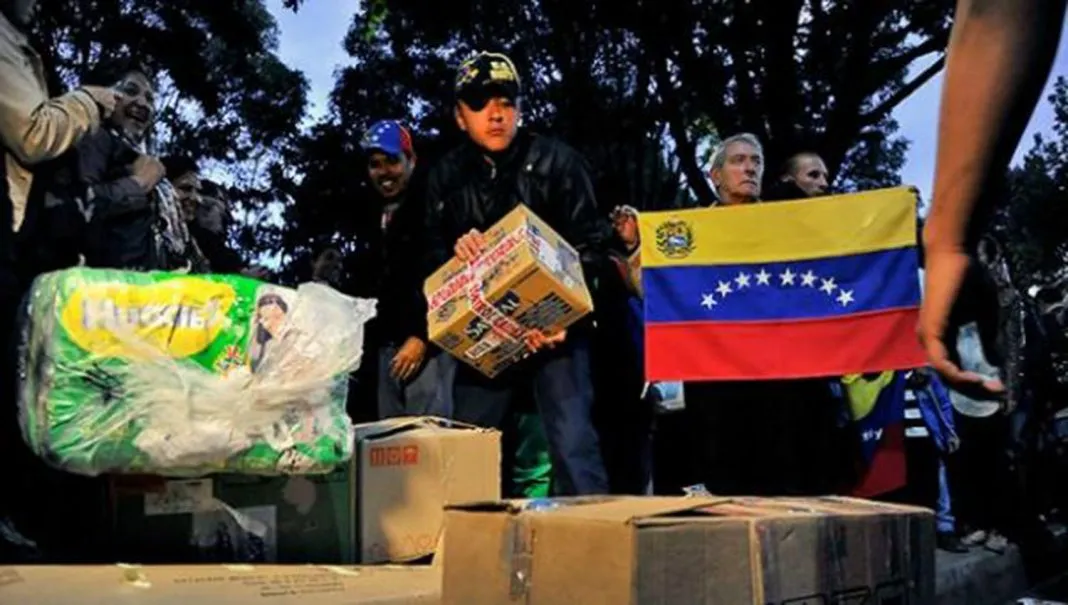
Source
According to Flores, hundreds of doctors, psychologists, nutritionists and volunteers from opposition political parties are employed in the humanitarian camps, as well as part of the more than 600,000 volunteers in a network that will work on the donations.
However, he pointed out that this effort was "short" due to the "magnitude of needs that exist".
In that sense, he asked the military to allow the entry of the aid before the repeated refusals of Nicolás Maduro to accept them.
Maduro himself said last week that the food donated by the United States is a "rotten gift" that has the "poison of humiliation", while its vice president, Delcy Rodriguez, said, without showing evidence, that they are "carcinogenic."
Faced with this, Flores responded Sunday that "the only contaminated food that has come to Venezuela" is the one that the government distributes in the aid program known as CLAP, and that according to the Parliament, which controls anti-Chavezism, has caused millionaire patrimonial losses over costs and corruption.
The Venezuelan opposition, which does not recognize the new 6-year mandate that Maduro swore almost a month ago, assures that Venezuela is going through a "complex humanitarian crisis" and has asked for help from the international community to assist it.
But the Venezuelan government denies the crisis and has said it will not accept donations, considering, among other things, that it could lead to an armed invasion.
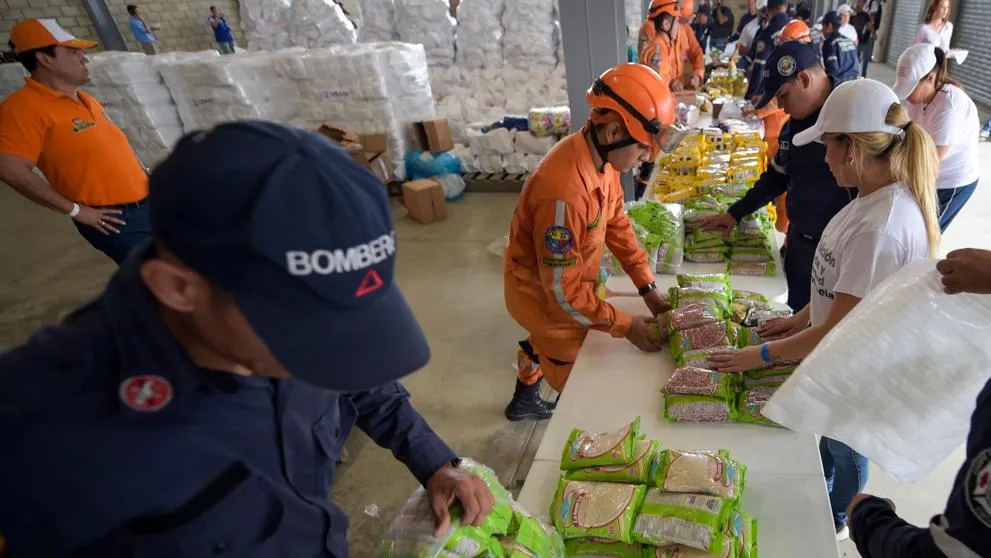
Source
All this happens amid the political crisis that erupted when Maduro swore the new term and the head of Parliament, the opposition Juan Guaidó, took oath as president in charge to declare that the Chavez president "usurps" the Presidency.
Guaidó has made a priority the entry of humanitarian aid in Venezuela and has indicated that donations will enter the next 23 with the support of citizens and the international community, mainly from nations like the United States and Colombia, which recognize it as the country's legitimate authority.
@raquel.ramirezv
